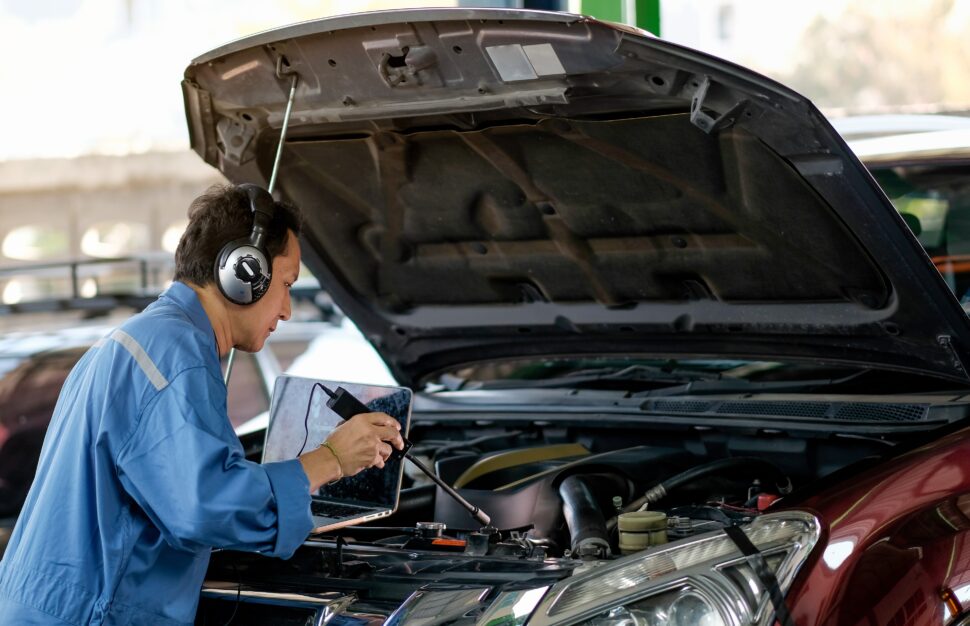When you purchase a used car, it’s not just a vehicle you’re acquiring; it’s an investment. Many buyers opt for used car warranties to protect this investment and gain peace of mind. In this comprehensive guide, we’ll explore everything you need to know about used car warranties, including the types available, what they cover, and how to choose the right one for your needs.
Understanding Used Car Warranties
A used car warranty, often called a pre-owned or certified pre-owned (CPO) warranty, is a contract between the warranty provider (typically the dealership or a third-party company) and the buyer. This contract outlines the coverage terms and conditions for specific repairs and services on the vehicle.
Types of Used Car Warranties
- Manufacturer’s Warranty: Some used cars may still be covered by the original manufacturer’s warranty, which is transferable to subsequent owners. This type of warranty typically covers significant components and systems for a specified period or mileage.
- Certified Pre-Owned (CPO) Warranty: CPO warranties are offered by dealerships on certified used cars. These vehicles undergo a rigorous inspection and refurbishment process. CPO warranties often extend the original manufacturer’s warranty, providing comprehensive coverage for a set duration.
- Third-Party Extended Warranty: Third-party warranty company’s offer extended warranties that can be purchased for used cars. These warranties vary widely in terms of coverage and cost. Buyers should carefully review the terms and consider the reputation of the warranty provider.
What Do Use Car Warranties Cover?
The coverage provided by a used car warranty can vary significantly depending on the type of warranty and the specific terms outlined in the contract. Here are some standard components covered by any warranties:
- Engine: Protection for major engine components, including the transmission and internal parts.
- Drive train: Coverage for details like the differential, driveshaft, and axles.
- Electrical Systems: Repairs electrical systems, including the starter, alternator, and wiring.
- Cooling System: Coverage for the radiator, water pumps, and related parts.
- Air Conditioning and Heating: Repairs to the A/C compressor, heater core, and associated components.
- Suspension: Coverage for suspension components, such as struts, shocks, and control arms.
- Brakes: Protection for brake system components, including the master cylinder and calipers.
- Fuel System: Repairs to the fuel pump, fuel injectors, and related parts.
- Steering System: Coverage for steering components, such as the power steering pump, rack, and pinion.
It’s essential to carefully review the warranty contract to understand the items covered and any exclusions or limitations.
Benefits of a Used Car Warranty
Financial Security: A warranty can provide financial protection against unexpected and costly repairs, saving you money in the long run.
- Peace of Mind: Knowing that your vehicle is covered can reduce the stress and anxiety associated with potential mechanical issues.
- Increased Resale Value: A vehicle with an active warranty may have a higher resale value, which can be more attractive to potential buyers.
- Quality Assurance: CPO warranties, in particular, offer assurance that the vehicle has undergone a thorough inspection and meets specific quality standards.
Considerations When Choosing a Used Car Warranty
Coverage Terms: Review the duration and mileage limits of the warranty. Some warranties may have a fixed term (e.g., three years or 36,000 miles), while others may have coverage until a specific mileage threshold is reached.
- Deductibles: Check if the warranty has a deductible, which is the amount you must pay for each covered repair. A higher deductible may result in lower upfront costs but higher out-of-pocket repair expenses.
- Transferability: Determine whether the warranty is transferable if you sell the vehicle before the contract expires. A transferable warranty can add value to the car.
- Coverage Exclusions: Carefully review what the warranty does not cover, as these exclusions can significantly impact its usefulness. Standard exclusions include regular maintenance, wear and tear, and pre-existing conditions.
- Authorized Repair Facilities: Check whether the warranty requires repairs performed at specifically authorized service centres. Limited service options could be inconvenient if you prefer using a particular mechanic or shop.
- Cost: Compare the warranty price to the potential savings on repairs. Ensure that the cost aligns with your budget and the value it offers.
- Vehicle Inspection: If you’re considering a CPO warranty, understand the inspection process the vehicle underwent. A comprehensive inspection is a hallmark of CPO programs.
Tips for Negotiating a Used Car Warranty
- Research before Buying: Know the warranty options for the make and model you want. This knowledge will empower you during negotiations.
- Ask Questions: Don’t hesitate to ask the seller or dealership about the warranty’s coverage, duration, and cost. Request a written copy of the warranty contract to review in detail.
- Negotiate the Price: You can arrange the warranty cost by negotiating the car’s purchase price. Dealerships may be open to adjusting the warranty price to close the deal.
- Consider Third-Party Warranties: Explore third-party warranty providers, as they often offer competitive options with flexible terms. Be sure to research the reputation of the warranty company before purchasing.
- Transferability: If you plan to sell the vehicle, inquire about the warranty’s transferability. A transferable warranty can enhance the car’s resale value.
In Conclusion
A used car warranty can provide essential peace of mind and financial protection when buying a pre-owned vehicle. To safeguard your investment, carefully review the terms and coverage of the contract and consider the cost of potential savings on repairs. By understanding your warranty options and negotiating effectively, you can make an informed decision that suits your needs and protects your investment for the future.
